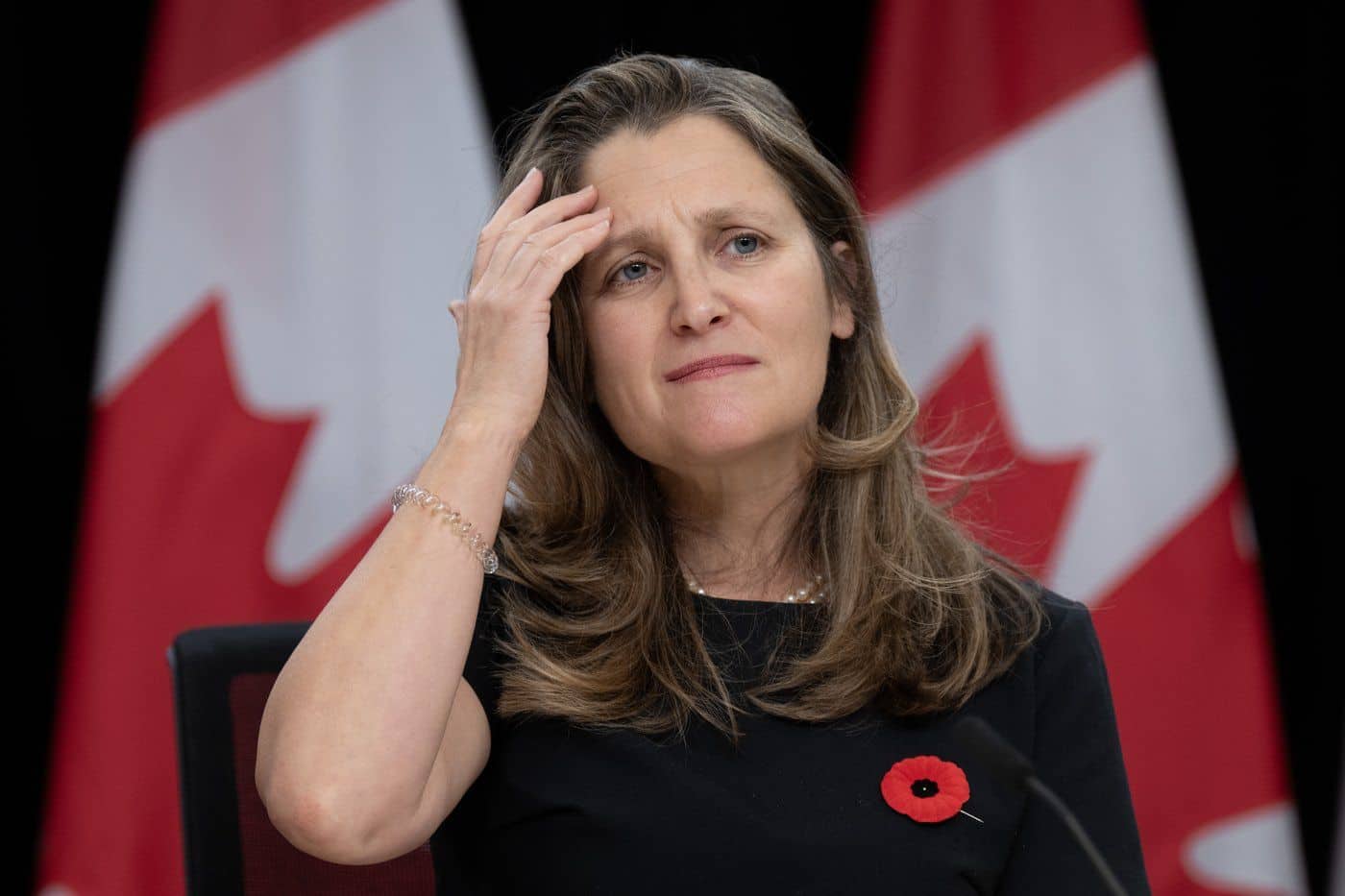Canadians to get update on federal finances, new housing measures in budget update
Published November 21, 2023 at 7:41 am

Finance Minister Chrystia Freeland is set to present the traditional fall update on Canada’s finances — a fiscal blueprint that’s expected to include measures aimed at getting more homes built.
A senior government official, whom The Canadian Press is not naming because they were not authorized to share details publicly, confirmed Monday that several housing policies would be part of Tuesday’s fiscal update.
The federal government is set to announce $15 billion in low-cost loans for builders as well as a $1-billion fund toward affordable housing, information previously reported by CBC News.
The loans are projected to fuel the construction of 30,000 new apartments, the official said.
The economic statement will also include help for local governments that are cracking down on short-term rentals. The measure, first reported by the Toronto Star, includes funding for enforcement and would prevent owners from claiming expenses-based tax deductions on their rental properties.
Freeland will also lay out a new Canadian mortgage charter that’s expected to outline what Canadians should expect from their financial institutions when they are renewing their mortgages.
The focus on housing comes as affordability issues dominate federal politics and remain a major concern for Canadians.
The Canada Housing and Mortgage Corp. estimates Canada needs to build 5.8 million homes by 2030 to restore affordability, a goal that economists at the Crown corporation have conceded will be very difficult to achieve.
The Liberals have been rolling out a trickle of announcements and holding weekly news conferences in recent months, hoping to sell Canadians on the merits of their economic policies.
But with inflation and interest rates still high, the Liberals will be walking a tightrope between their planned spending measures and the risk that they could fuel an unwelcome spike in prices.
Bank of Canada governor Tiff Macklem recently warned that on aggregate, spending plans for all levels of government over the next year would risk fuelling inflation. He called for a fiscal policy to complement monetary policy.
Growth in the Canadian economy is also slowing under the weight of high interest rates, which threaten government revenues.
In the lead-up to the fall economic statement, Freeland has repeatedly signalled that fiscal responsibility is a priority for the federal government right now, and has warned that it won’t be able to do “everything.”
Robert Asselin, the senior vice-president of policy at the Business Council of Canada, said the federal government does not have a good track record when it comes to fiscal restraint.
“Unfortunately, in the past, every time Minister Freeland said ‘fiscal restraint,’ she has come up with huge spending,” Asselin said.
Asselin, who used to be a policy and budget director for former finance minister Bill Morneau, said the federal government should prioritize getting a handle on inflation so that interest rates can fall.
“I really do think that the best thing they could do in the short term is not add fuel to inflation,” he said.
Federal opposition parties, meanwhile, have laid out some of their own expectations.
On Friday, Conservative Leader Pierre Poilievre called on the Liberals to end the carbon price and “bring down interest rates and inflation by balancing the budget.”
He also wants the government to adopt his proposal of tying federal dollars to municipal housing results, rather than pursuing agreements with cities through the Housing Accelerator Fund program.
That program invites municipalities to apply for federal funding based on their plans to boost housing development by making changes to bylaws and regulations, including allowing denser housing construction.
NDP Leader Jagmeet Singh has said he wants to see more action on affordable housing and grocery prices.
INsauga's Editorial Standards and Policies


